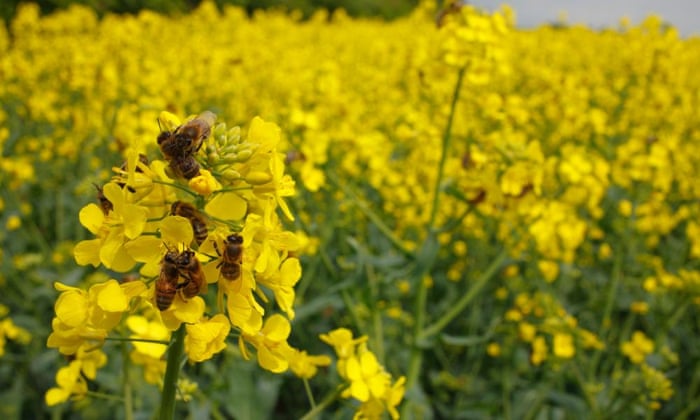
A new study, published on Thursday, August 20, 2015, shows a correlation between honeybee colony deaths and neonicotinoid pesticide usage in the United Kingdom.
Neonicotinoids generally come as a seed coating. When the seed sprouts, it takes in the pesticide, which then protects it against predators. But if that plant flowers, small amounts of the pesticide will linger in the pollen and nectar, which may hurt the beneficial insects, like bees, visiting those blooms to feed.
There’s some controversy about this: Scientists have found some indications that the neonics are hurting wild honeybees, but not domestic honeybees. As Maj Rundlöf, the lead author of one of those studies, told Nature: “This doesn’t mean that there aren’t any negative effects on honeybees, but so far I don’t see any evidence from field studies supporting that.”
Well, now there is a field study supporting that. This new study found a concerning association with just one neonic, imidacloprid, and the authors wrote that we shouldn’t extrapolate to others. But still, this is the first large-scale field study to suggest a link between domestic bee troubles and a neonic.
It’s always been clear that neonics are bad for bees in sufficient quantities. After all, they kill insects, and bees are insects. But before now, there wasn’t good evidence that the small amounts of neonics that hives were getting exposed to in real world situations were having a noticeable effect. That’s why this study matters.
Read more here.




















